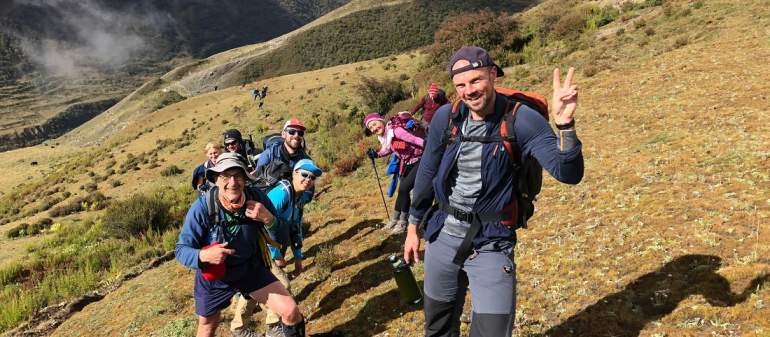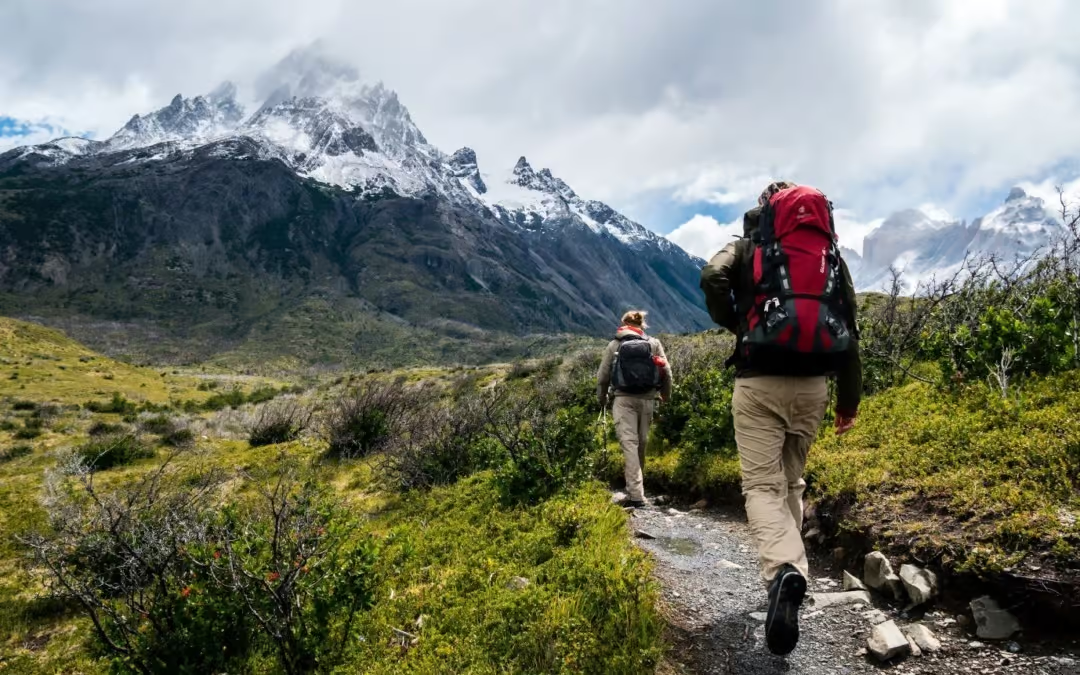Is overseas adventure travel solvent has been very popular in recent years as it provides visitors with unusual experiences beyond conventional holidays. From diving in the Great Barrier Reef to hiking in the Himalayas, many people find tremendous appeal in discovering the great outdoors and fully absorbing other cultures. But as the tourism business changes, a crucial issue becomes: Is international adventure travel viable? This blog explores the financial sides of adventure tourism, its environmental effects, and general influence on the travel industry.
Understanding What Is Overseas Adventure Travel Solvent
Defining what adventure travel actually involves is crucial before we address whether or not international adventure travel is viable. Often occurring in isolated or exotic locales, adventure travel is defined by activities including some danger and physical challenge. This might entail pursuits like:
-
Trekking and hill climbing
-
Climbing rocks
-
White-water rafting
-
Mountain riding
-
Safari adventures for wildlife
Cultural Immersion In Far Off Locations
Is overseas adventure travel solvent appeals to those who want to give themselves unforgettable experiences and a sense of accomplishment? With this increasing demand, though, we have to take into account the financial ramifications for visitors as well as the locations they visit.
Adventure Travel's Changing Financial Scene
Examining the financial situation of the adventure tourism sector first helps us to determine if international adventure travel is viable.

1. Market Development
The market for adventure travel has been growing somewhat noticeably. Recent research projects that the worldwide adventure tourism industry will generate billions of dollars in sales in the next years. Many elements contribute to its development, including:
-
Travellers’ discretionary money has grown.
-
An increasing tendency toward travel for experience.
-
The emergence of social media, which advances original travel experiences.
-
Many adventure travel businesses and corporations are profiting from more reservations as the market grows, which begs issues of sustainability and profitability.
2. Cost Structure
Solvency of adventure travel depends on an awareness of its cost structure. Adventures usually include a range of costs, including:
-
Flight expenses (local transit, transportation)
-
Accommodation (hotels, lodges, campsite)
-
Activity fees—guided trips, equipment rentals—
-
Expenses related to food and beverages
-
Licenses and insurance
The destination, length of the vacation, and kind of activities included will all greatly affect the overall cost. For visitors, this involves careful planning to guarantee they can afford the experience without taxing their resources.
3. Pricing Strategies
Adventure travel agencies have to use sensible pricing policies if they are to stay afloat. These techniques might call for tiered charging depending on degree of experience or service quality.
-
Offers bundle offers combining several events and services.
-
Changing rates depending on demand by means of dynamic pricing strategies
-
Companies may guarantee the long-term health of their operations by finding the proper mix between profitability for enterprises and cost for consumers.
How Adventure Travel Affects Local Economies
Examining whether international adventure tourism is viable depends mostly on its effect on local businesses. Adventure travel may help the local economy of the locations it visits greatly. Like this:

1. Creation of Jobs
Often, adventure travel calls for hiring local guides, hotel personnel, and transportation companies. By generating cash and encouraging skill development, this not only provides employment but also strengthens nearby areas.
2. Improvement of Infrastructure
Improved infrastructure including roads, airports, and communication networks can follow from more tourist. Although visitors will gain from this development, it also improves the quality of life for nearby people.
3. Cultural Exchange
Adventure tourism encourages local communities' cultural interaction with visitors. Increased knowledge and respect of many cultures resulting from this connection can help to promote goodwill and cooperation.
To avoid bad effects including congestion, environmental damage, and cultural commercialization, adventure tourism must be approached sustainably, nevertheless.
Adventure Travel: Sustainable Practices
We have to take industrial sustainability into account even as we investigate whether international adventure tourism is profitable. Adventure tourism must stay viable for next generations by means of sustainable practices. Following are some important facets of sustainability in adventure travel:
1. Environmental Responsibility
Many times, adventure travel occurs in sensitive environments, so environmental responsibility becomes rather important. Businesses may implement sustainable practices by means of responsible packaging and recycling, therefore reducing waste.
-
Teaching visitors Leave No Trace values.
-
Supporting local animal protection and environmental conservation projects.
2. Citizen Involvement
Developing a sustainable adventure travel strategy depends on interacting with nearby towns. Supporting nearby businesses such restaurants and artisan markets will help to achieve this.
-
Include nearby populations in positions of guiding and hospitality.
-
Honoring customs and cultural norms.
3. Ethical Considerations
Travel agencies have to give ethical issues top priority for their operations. This covers: fair compensation for local staff members.
-
Open pricing that accurately represents the cost of experiences.
-
Steering clear of exploitative behaviours that could damage surroundings or communities.
-
Through sustainability, is overseas adventure travel solvent can remain viable and help the places it visits stay intact.
Read Also: Cheapest Places To Travel In USA
Challenges Facing Adventure Travel
Adventure travel is growing, but the sector still confronts significant issues that might compromise its viability. These are some major obstacles:

1. Economic Fluctuations
Travel habits and spending can be greatly influenced by economic crises or global concerns such the COVID-19 epidemic. Adventure travel agencies have to be ready to change with the times regarding financial situation.
2. Competition
Growing popularity of adventure tourism drives more travel company competition. Companies have to set themselves apart to draw consumers, which could cause pricing wars compromising their profitability.
3. Environmental Concerns
Rising tourism can put a pressure on nearby ecosystems and resources. Adventure travel agencies have to strike a balance between satisfying customer needs and safeguarding the settings they work in.
The Future of Adventure Travel
Is international adventure travel then sensible? The response is more complex. Companies must give sustainability, community involvement, and ethical behaviour a priority even if the adventure tourism industry is booming. This helps them to guarantee their long-term survival and benefit the travel sector generally as well as local businesses.
Adopting Creativity
Adventure travel's future will be shaped much in part by innovation. Businesses embracing technology—such as virtual reality experiences or sophisticated booking systems—can improve the travel experience and simplify processes.
Diverse Offering Strategies

Adventure travel businesses might vary their offers to include wellness retreats, eco-tours, and cultural experiences if they want to remain competitive and solvent. This strategy invites a larger audience and motivates tourists to visit fresh locations.
Building Resilience
Adventure travel's sustainability depends on our capacity to change with the times. Businesses who create resilience by means of adaptable company structures, diversification of income sources, and staff training investments will be more suited for upcoming difficulties.
Conclusion
In essence, even if the issue of whether foreign is overseas adventure travel solvent is feasible is difficult, there is great possibility for expansion and favourable influence. Prioritizing sustainability, fostering strong community relationships, and embracing innovation can help adventure travel businesses not only survive financially but also provide guests remarkable experiences.
All those involved in the sector should cooperate to make sure adventure tourism stays a sensible and ethical option for next generations as it develops. Supporting sustainable practices in adventure travel will help to significantly protect the beauty of our world for years to come, regardless of your level of travel frequency or adventure seeking. Thus, be ready for your next journey knowing that your decisions help to create a more sustainable future for travel!

